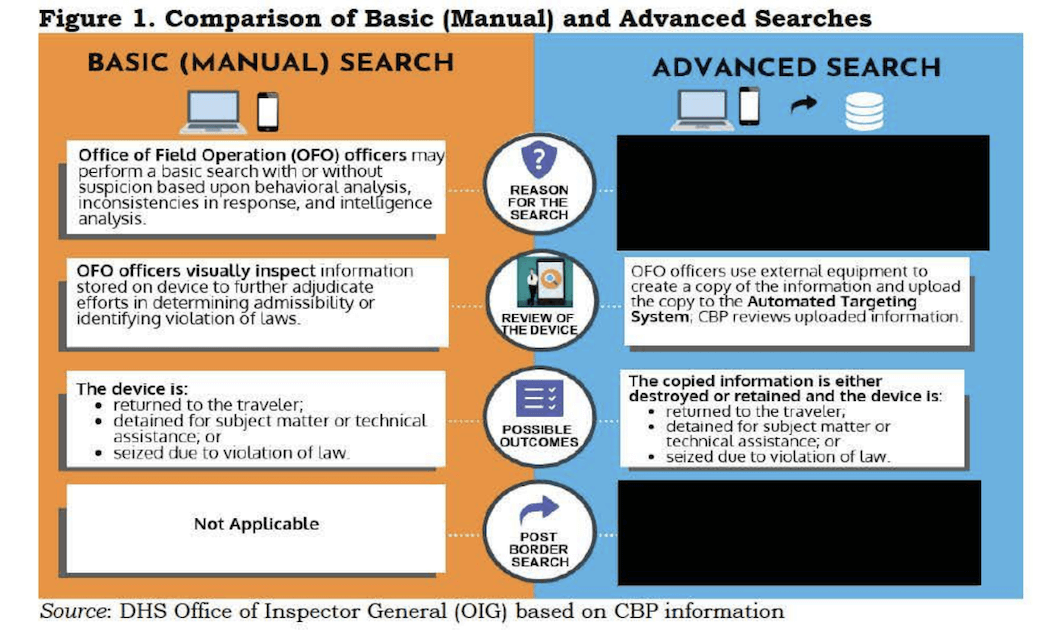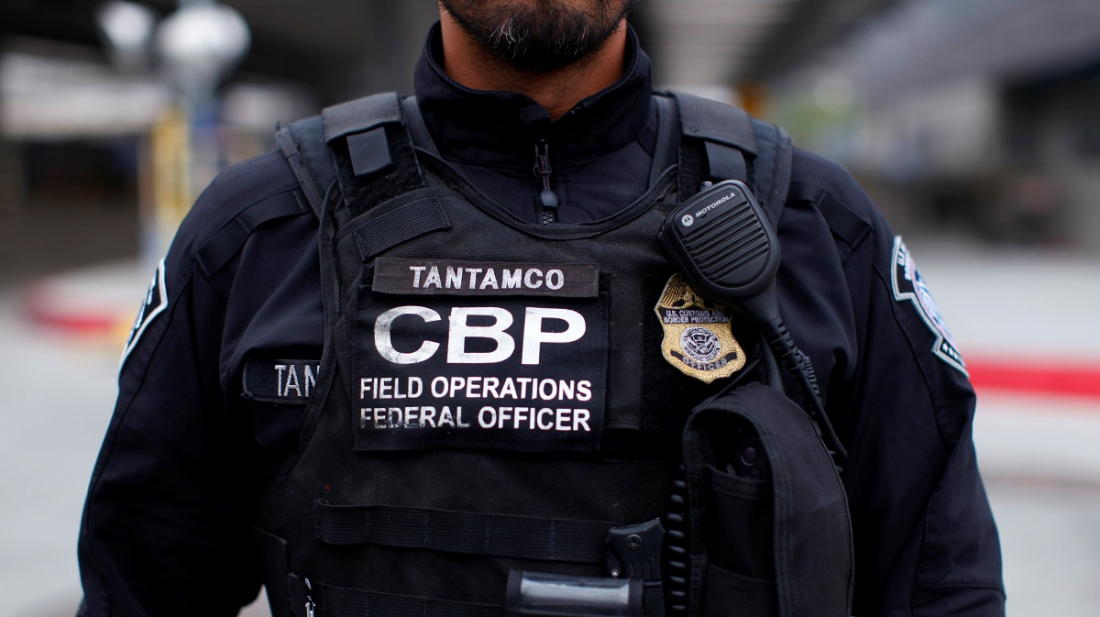Why it matters: We know that Customs and Border agents are allowed to search electronic devices belonging to travelers who enter the US, but a new report has found that the majority of officers fail to delete this information from their USB drives.
Over 787 million travelers entered the U.S. in 2016 and 2017, 47,400 of whom had their electronic devices subject to a search, including "advanced searches." Unlike a basic search, which involves visually checking phones, laptops, etc. without downloading anything, advanced searches consist of downloading data onto USB drives and plugging them into CBP's Automated Targeting System so it can be analyzed.
According to an Office of the Inspector General (OIG) report, many customs officials are failing to delete travelers' information from these drives following an advanced search.
[The Office of the Inspector General] physically inspected thumb drives at five ports of entry. At three of the five ports, we found thumb drives that contained information copied from past advanced searches, meaning the information had not been deleted after the searches were completed. Based on our physical inspection, as well as the lack of a written policy, it appears [Office of Field Operations] has not universally implemented the requirement to delete copied information, increasing the risk of unauthorized disclosure of travelers' data should thumb drives be lost or stolen.
Additionally, officers are supposed to sever external connections so they can only review data stored on a device, but this rule isn't being followed, either. There's also mention of workers receiving "inadequate supervision," and that some of the issues were the result of unclear or undocumented policies.
As noted by Gizmodo, a lot of the report was redacted, including the reasons why an advanced search takes place and what happens afterwards. It's also noted how U.S. Customs and Border Protection forgot to renew its license for the software it uses to conduct the advanced searches.

The OIG adds that 67 percent of the electronic device search cases it looked at included insufficient or inaccurate information in officials' reports. It has recommended clarifying policies and increasing documentation requirements.
Back in August, an American Muslim woman sued border officials after her iPhone was taken by agents and had its data copied.
CBP says only 0.007 percent of international travelers were subject to a digital border search during the fiscal year 2017, up 0.002 percent from a year earlier.
